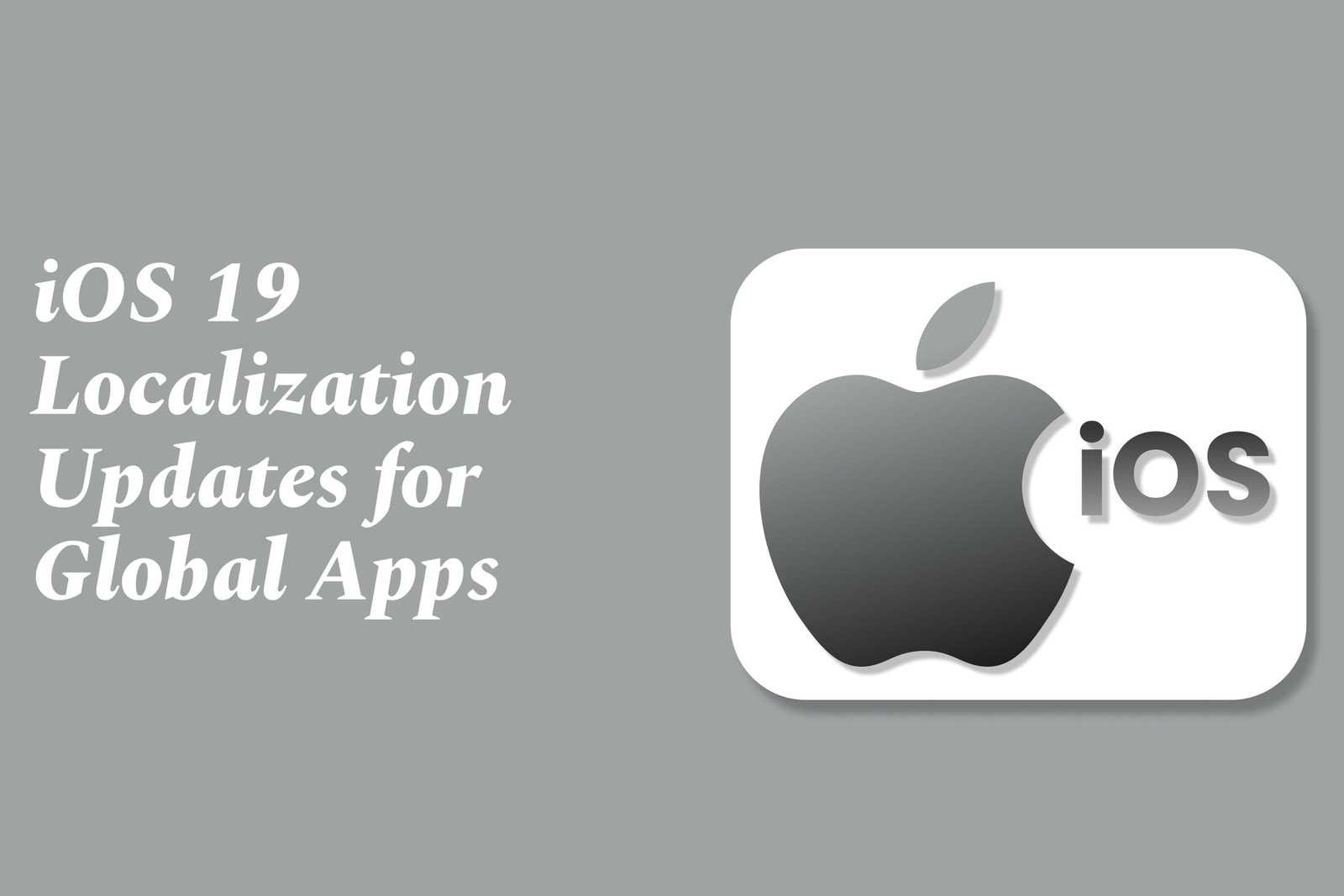iOS 19 localization updates for global apps
iOS 19 brings major localization updates for global apps, enhancing support for diverse languages and regional settings within a redesigned, unified interface. Developers can leverage new APIs to create seamless, culturally relevant experiences across all Apple devices worldwide.
iOS 19 Localization Updates for Global Apps
1 ) Overview of Apple's OS Overhaul
Apple is preparing a major update across its platforms, including iOS 19, iPadOS 19, and macOS 16. This overhaul aims to enhance both user experience (UX) and developer experience (DX) with significant design and functionality changes. The updates seek to unify the look and feel across Apple devices for a seamless ecosystem.
2 ) Key Design Changes
The redesign will affect icons, menus, applications, windows, and system buttons. Inspired by visionOS (the software for Apple’s Vision Pro headset), the overhaul emphasizes greater transparency and introduces new window styles and button types to align all system elements for consistency.
3 ) Impact on Localization and Global Apps
With the comprehensive redesign, global app developers must focus on localization readiness to ensure their apps support the updated UI and UX paradigms effectively. Apple’s approach favors a unified system wide design that requires apps to adapt to new visual elements and interaction patterns, supporting diverse languages and regional preferences seamlessly.
4 ) Implementation Timeline
The updates will be unveiled at Apple’s Worldwide Developers Conference (WWDC) scheduled for June 2025, offering developers ample time to explore new APIs and design guidelines, and prepare their apps for localization that complements the iOS 19 enhancements.
5 ) Summary
iOS 19 introduces profound localization considerations within a sweeping OS redesign focused on harmonizing user interactions across Apple’s ecosystem. Developers building global apps must prioritize adapting to new design specifications inspired by visionOS to deliver inclusive and polished experiences worldwide.
https://justacademy.in/news-detail/android-performance-benchmarking-updates
https://justacademy.in/news-detail/react-native?s-secret-sauce-for-lightning-fast-startups
https://justacademy.in/news-detail/android-language-support-updates
https://justacademy.in/news-detail/react-native?s-new-gesture-apis:-what-you-can-build-now
https://justacademy.in/news-detail/apple-swift-6.0-released-with-major-changes
Related Posts
Java supports GDPR and data privacy by enabling secure data handling through encryption, controlled access, and precise data management. It allows developers to minimize PII exposure, ensure data confidentiality, and design workflows that comply with data protection regulations effectively.
Java code quality tools have evolved to include advanced static analysis, integrated security checks, and AI-powered code reviews. These updates help developers detect bugs, enforce coding standards, and enhance security, streamlining the development process and improving overall code reliability.
Java remains a cornerstone in big tech companies, evolving with modern features like records, pattern matching, and virtual threads. Its robust ecosystem, enhanced performance, and growing AI integrations keep it vital for both legacy systems and innovative new projects.
Java and CI/CD pipeline optimizations streamline Java application development by automating builds, tests, and deployments. They improve efficiency through parallelization, caching, and secure secrets management, enabling faster feedback loops and more reliable, scalable software delivery.
Java supports modern cryptography standards through its flexible Java Cryptography Architecture (JCA), enabling integration of advanced algorithms like AES, EdDSA, and post-quantum tools. Libraries like Bouncy Castle offer FIPS-certified, hardware-accelerated implementations for secure development.
Java 23 enhances record patterns by enabling concise, direct destructuring of record components within pattern matching, simplifying type checks and data extraction. This improvement boosts code readability and expressiveness by reducing boilerplate in handling immutable data classes.
Java remains a top choice for mobile app backends, powering scalable, secure, and high-performance server-side solutions. Latest trends include cloud-native microservices, reactive programming, and enhanced JVM optimizations, enabling efficient, flexible, and robust mobile backend development.
Java SE 24 and LTS Java SE 21 offer enhanced features and performance, while Apache Spark 4.0.0 introduces Scala 2.13 support and advanced ML and SQL capabilities. Together, they empower developers to build scalable, high-performance data applications with modern tools.
JUnit 5 modernizes Java testing with a modular architecture, improved assertions, and seamless Java 8+ support. Beyond JUnit, tools like Mockito and AssertJ enhance mocking and assertions, creating a powerful, flexible ecosystem for writing clean, efficient Java unit tests.
Java plays a pivotal role in cloud automation tools by providing a robust, platform-independent language used to build scalable automation frameworks like Jenkins and Selenium, enabling efficient CI/CD pipelines, testing, and orchestration across diverse cloud environments.










